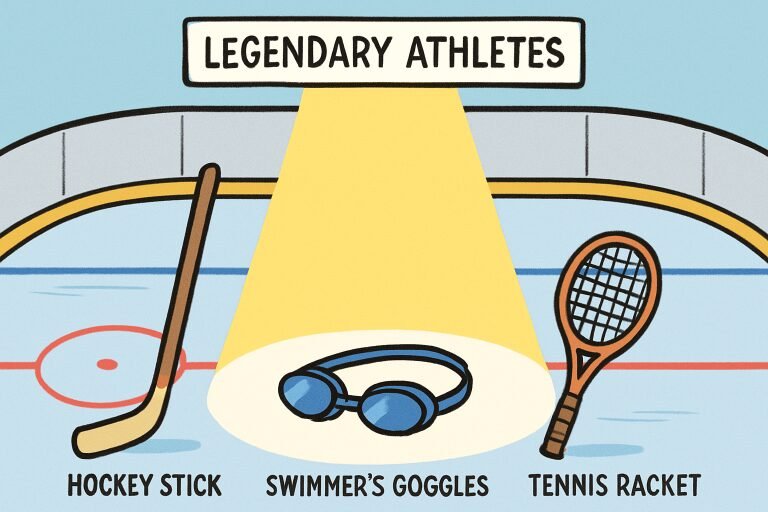Achieving legendary status in sports requires more than natural ability. It is the result of relentless preparation, discipline, and a commitment to personal growth. By looking closely at athletes who have reached the pinnacle of their fields, young and emerging professionals can gain unique insights into what it truly takes to excel. Learning from icons such as Wayne Gretzky and Michael Phelps highlights the difference between good athletes and great ones. For anyone interested in accessing expert perspectives or insights from hockey’s all-time great, the Wayne Gretzky speaking fee and booking agent resource offers direct information for teams, businesses, and fans.
Beyond skill and statistics, the greatest athletes share characteristics that enable sustained achievement. They redefine boundaries, inspire those around them, and set examples on and off the field or rink. This expansive view not only fuels individual excellence but also elevates the broader sports community.
Relentless Work Ethic
Pushing Past Limits
Dedication is arguably the most important predictor of greatness and long-term success; it’s about maintaining consistency, showing grit, and doing the hard work diligently even when no one is watching or acknowledging your efforts. Michael Phelps, famous for his unmatched Olympic medal haul and legendary swimming career, built his success through intense daily training sessions, even on holidays and during personal time. This strong habit of relentless practice and discipline formed the foundation for his record-breaking performances and numerous Olympic victories, serving as an inspiring model for athletes across all disciplines, from beginners to professionals.
Adaptability and Innovation
Staying Ahead of the Curve
The rapid and continually accelerating evolution of sports across the globe pushes athletes to refine their skills, improve their tactics, and adapt their training methods constantly to stay ahead of the competition. Wayne Gretzky’s illustrious career is the epitome of innovation and strategic thinking; his extraordinary ability to anticipate plays, read the game, and dictate the tempo on ice set him apart as one of the greatest hockey players of all time. Known for his insightful philosophy of “skating to where the puck is going,” Gretzky demonstrated convincingly that embracing new strategies, leveraging innovative techniques, and continually improving one’s game IQ can create a truly transformational impact on one’s performance. Overall, adaptability, whether in response to emerging competitors, changing regulations, or evolving game dynamics, often separates the truly exceptional athletes from the rest, underscoring the importance of versatility in sports.
Mental Resilience
Overcoming Obstacles and Protecting Well-being
Even the most talented athletes encounter adversity and mental hurdles. Simone Biles, whose critical self-care decisions during the Tokyo Olympics reshaped global conversations around athlete wellbeing, showed that mental resilience isn’t just about powering through, as it’s also knowing when to ask for support. By putting mental health at the forefront, today’s athletes are modeling a holistic approach to long-term success and guiding future generations.
This mental toughness isn’t developed overnight; it comes from years of dealing with setbacks and learning to regroup after failure.
Leadership and Teamwork
Inspiring and Uplifting Others
True greatness involves elevating those around you. In the world of hockey, Mark Messier is remembered as not just a star performer but as an exemplary team captain who motivated teammates to reach their maximum potential. Effective leadership in sports means being able to unify a group with diverse personalities and skills, fostering a culture where every member contributes to collective victories. These skills often translate into other areas of life, benefitting not only individual growth but teams and communities as well.
Balancing Professional and Personal Life
Sustaining Performance and Wellbeing
For many athletes, the demands of competition, media, and sponsorship commitments must be weighed against personal priorities. Wayne Gretzky juggled immense public interest and personal obligations while maintaining elite performance. Achieving this delicate balance requires time management, support systems, and the wisdom to step back when necessary, habits critical for longevity in any high-performance environment.
Continuous Learning and Improvement
Never Settling for ‘Good Enough’
Enduring greatness is never accidental. Roger Federer’s humility, even as a top-ranked tennis player, illustrates that the pursuit of mastery is ongoing. Despite dominating match results, Federer was keenly aware that every point was a learning opportunity. Adopting a growth mindset, refining techniques, welcoming constructive criticism, and constantly seeking improvement, is the hallmark of sustainable success.
Embracing Pressure and Competition
Transforming Stress into Motivation
The ability to channel pressure into performance distinguishes champions. Caitlin Clark’s fierce approach to NCAA basketball games, where she thrives on competition and fan energy, epitomizes how pressure can become positive fuel. Rather than shying away from big moments, elite athletes use them to reach new heights.
Giving Back and Inspiring Others
Creating a Lasting Legacy
Legendary careers are ultimately measured not just by statistics, but by the impact athletes have beyond their playing days. Wayne Gretzky’s commitment to youth hockey programs helped broaden access and inspire countless young athletes. Giving back fosters community, encourages the next generation, and ensures that a legacy of greatness endures far into the future.
Future athletes can chart their paths to greatness by embracing these timeless lessons. Modeling a relentless work ethic, adaptability, and a commitment to community doesn’t just lead to success on the ice, court, or field, as it lays the groundwork for leadership, personal fulfillment, and long-standing influence in the sporting world and beyond.

